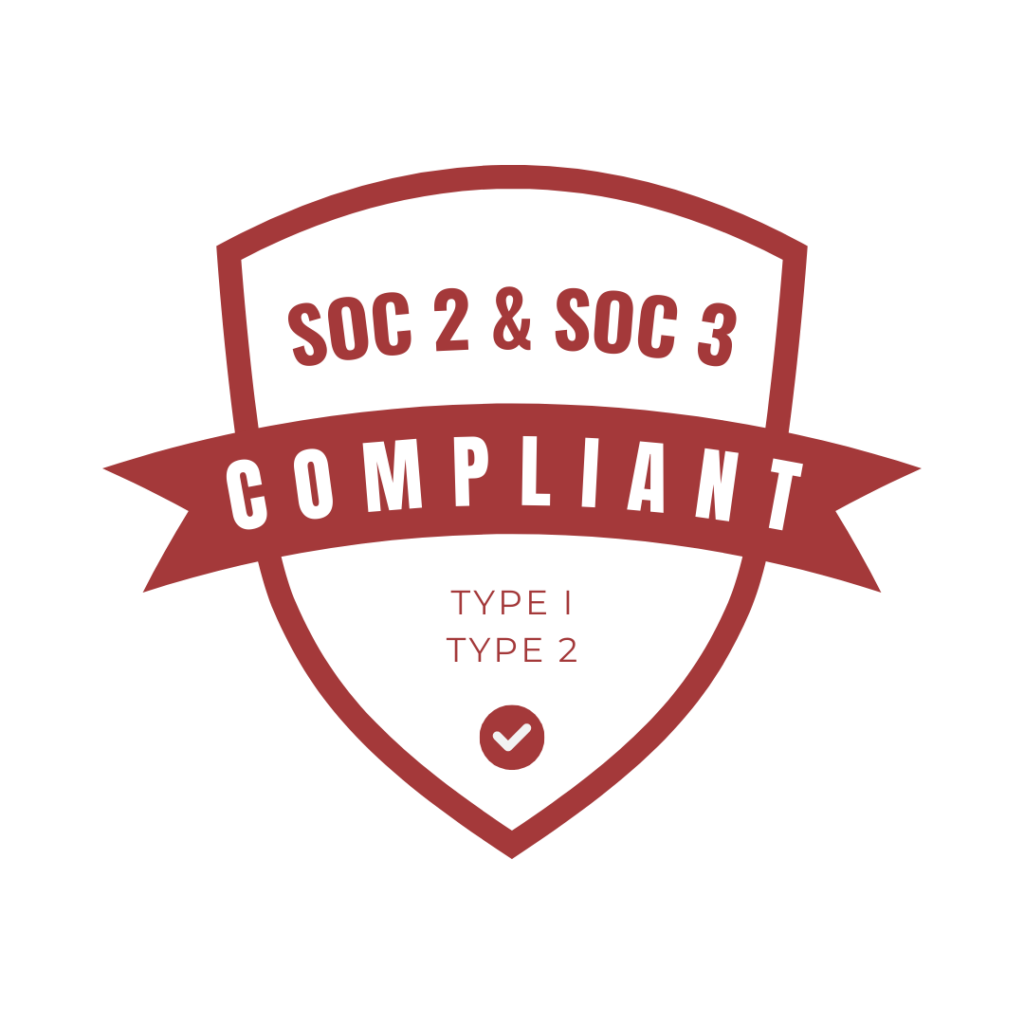
WORLDWIDE
Novel Coronavirus Outbreak
Imported
cases of coronavirus disease 2019 (COVID-19) have been confirmed in several
countries. This new coronavirus can cause symptoms of fever, cough, and
shortness of breath. Travelers in affected locations are advised to pay
attention to general hygiene and avoid direct contact with people who are sick.
Anyone with symptoms of pneumonia, which include high fever and shortness of
breath, should seek medical attention.
Authorities in several countries have introduced travel restrictions and health
screening measures at various airports amid the COVID-19 outbreak. While
measures initially applied primarily to travelers arriving either directly or
indirectly from China, some countries have now extended restrictions to
travelers from Iran, Iraq, Italy, Japan, Singapore, South Korea, Thailand and
countries in the Schengen Area of Europe. Meanwhile, some airlines have
temporarily suspended flight operations. Travelers should anticipate related
disruption at airports and reconfirm their itineraries, as well as the overall
feasibility of their journeys, given the increased restrictions.
For more information on confirmed cases of COVID-19 globally, refer to the
latest Situation Report on the World Health Organization (WHO) website by
clicking here. For more general information on the outbreak and WHO’s
response, click here.
AMERICAS
Regional
The first cases of COVID-19 have been confirmed in Argentina, Chile, the
Dominican Republic, and Ecuador. This new coronavirus can cause symptoms of
fever, cough, and shortness of breath. Travelers in affected locations are
advised to pay attention to general hygiene and avoid direct contact with
people who are obviously sick. Anyone with symptoms of pneumonia, which include
high fever and shortness of breath, should seek medical attention.
Several countries have introduced travel restrictions to contain the spread of
the COVID-19 outbreak. Health screening measures are in place at various ports
of entry across the Americas. While initially applying primarily to travelers
arriving directly or indirectly from China, some countries have extended
restrictions to travelers from other affected countries, including Iran, Italy,
Japan, Singapore, South Korea, and countries within the Schengen Area of
Europe. Some airlines have also suspended or reduced flights to and from
affected countries. Travelers should maintain flexible itineraries accounting
for disruption at airports. Passengers traveling from China or other countries
affected by the outbreak should anticipate more stringent scrutiny and
ascertain overall feasibility of travel prior to departure.
United
States
Yesterday, US President Donald Trump has announced that all travel from 26
European countries to the United States will be temporarily halted for a period
of 30 days, in an effort to stop the spread of COVID-19. The 30-day travel ban
covers countries within Europe’s Schengen Area, and will take effect on March
13 at 12:00 AM local time. Affected countries include Austria, Belgium, Czech
Republic, Denmark, Estonia, Finland, France, Germany, Greece, Hungary, Iceland,
Italy, Latvia, Liechtenstein, Lithuania, Luxembourg, Malta, Netherlands,
Norway, Poland, Portugal, Slovakia, Slovenia, Spain, Sweden, and Switzerland.
The United Kingdom is exempt from the new travel restrictions. The
measures will not apply to permanent legal US residents or their immediate
family members. US citizens returning from the European Union will be required
to return home to designated airports and undergo heightened health screenings.
Travelers arriving to the US after traveling from or through China or Iran
should also expect heightened screening measures for COVID-19 and related
disruption. All flights from China are being re-routed through 11 airports,
while additional entry restrictions for travelers from China and Iran remain in
effect. The states of Florida, New York, and Pennsylvania have asked those
returning from travel to China, Iran, Italy, and South Korea to self-isolate
for 14 days.
Cases of the novel strain of coronavirus has been confirmed in people in the
United States. Cases have been detected in the states of Arizona, California,
Colorado, Connecticut, Washington DC, Florida, Georgia, Hawaii, Illinois,
Indiana, Iowa, Kansas, Kentucky, Louisiana, Maryland, Massachusetts, Minnesota,
Missouri, Nebraska, Nevada, New Hampshire, New Jersey, New York, North
Carolina, Ohio, Oklahoma, Oregon, Pennsylvania, Rhode Island, South Carolina,
South Dakota, Tennessee, Texas, Utah, Vermont, Virginia, Washington and
Wisconsin. California, New York and Washington are the most impacted states,
with over 100 confirmed cases each. For more information on cases in the US,
visit the US Centers for Disease Control and Prevention (CDC) website here. Health
authorities have implemented protocols for isolation, quarantine, testing, and
managing people who may have been exposed to the virus. To prevent infection,
travelers should pay attention to hygiene, wash hands frequently, avoid
touching their face, and avoid close contact with other people.
Argentina
Travelers should maintain flexible itineraries and expect heightened health
screening measures at Ezeiza International Airport (EZE) due to the COVID-19
outbreak. Yesterday, President Alberto Fernandez noted that the government was
considering temporarily suspending all flights to and from Italy. No concrete
decision on the matter has been taken at this time. Travelers arriving from
Italy, China, France, Germany, Iran, Japan, Spain, the US, and South Korea are
required to undergo a mandatory 14-day self-quarantine.
Bolivia
The first imported cases of COVID-19 have been confirmed in Bolivia. This new
coronavirus can cause symptoms of fever, cough, and shortness of breath.
Although transmission from human-to-human has occurred in other countries,
there is no suggestion at this stage of any further spread in Bolivia.
Travelers in affected locations are advised to pay attention to general hygiene
and avoid direct contact with people who are sick. Anyone with symptoms of
pneumonia, which include high fever and shortness of breath, should seek
medical attention.
Canada
Cases
of the novel coronavirus, currently causing an outbreak in mainland China have
been confirmed in Canada. All individuals had a recent travel history to Wuhan.
Travelers to affected locations are advised to pay attention to general hygiene
and avoid direct contact with people who are obviously sick. Anyone with
symptoms of pneumonia, which include high fever and shortness of breath, who is
or has been in an affected location should seek medical attention.
Travelers should maintain flexible itineraries and expect heightened screening
measures in place for the COVID-19 disease and related disruption. Authorities
have implemented screening questions and health symptom checks for passengers
arriving at major airports, including Montreal-Trudeau (YUL), Toronto Pearson
(YYZ), and Vancouver (YVR) international airports. Travelers arriving from
China and Iran are required to undergo more stringent screening and requirements.
Major airlines have canceled flights between Canada and some countries affected
by COVID-19.
AFRICA
& THE MIDDLE EAST
Regional
Authorities continue to impose health screening measures at airports along with
some travel restrictions linked to COVID-19. These have applied primarily to
travelers arriving from China, though some countries and airlines are also
implementing measures for those traveling to and from France, Germany, Iran,
Italy, South Korea, and Spain. Travelers should anticipate related disruption
at affected airports and reconfirm their itineraries.
Non-essential travel to Israel should be deferred through March 23, and travel
to the West Bank should be deferred through April 6, due to entry restrictions
and flight cancellations amid the COVID-19 outbreak. Israeli officials have
announced that travelers arriving from all foreign countries will be denied
entry beginning today unless they are able to self-quarantine for 14 days. The
Palestinian Authority imposed a 30-day State of Emergency on March 6, limiting
movement within the West Bank and banning all public gatherings. Bethlehem was
put on lockdown on March 5 due to a spike in COVID-19 cases.
Egypt
Today through Saturday, March 14, travelers should plan journeys accounting for
disruption caused by forecast adverse weather conditions. The Egyptian
Meteorological Authority (EMA) has warned of heavy rainfall and possible
flooding in Greater Cairo, the Northern Coasts, the Suez Gulf, and the Sinai
Peninsula. Accompanying dust storms are also expected to impact the Red Sea and
South Sinai. Such conditions will result in decreased visibility and disruption
to transportation and other services. Travelers should reconfirm the status of
transportation and routes before setting out.
Iran
An outbreak of COVID-19 is underway in Iran. In response, several countries
have closed their land borders with Iran and suspended flights. COVID-19 can
cause symptoms of fever, cough, and shortness of breath. Travelers are advised
to pay attention to general hygiene and avoid direct contact with people who
are sick. Anyone with symptoms of respiratory illness who may have been exposed
to COVID-19 should seek medical attention according to the local procedure. On
February 26, the US Department of State issued a Level 4: Do Not Travel
Advisory, stating that all non-essential travel to Iran be deferred due to an
outbreak of COVID-19.
Lebanon
Yesterday, Prime Minister Hassan Diab announced that all air, sea, and land
travel to and from 11 countries would be halted in two phases to prevent the
potential importation of COVID-19. This includes an immediate ban on all
flights to and from Iran, Italy, China, and South Korea. Travelers should
reconfirm their itineraries and anticipate disruption in the wake of the COVID-19
pandemic.
Liberia
Today, travelers in Monrovia should anticipate disruption during a protest by
journalists and plan journeys accordingly. Members of the Press Union of
Liberia will gather at its headquarters on Clay Street at 8:00 AM local time to
denounce the security forces’ alleged mistreatment of journalists covering a
previous protest.
Malawi
Today, travelers in urban centers should avoid ongoing demonstrations by the
opposition Malawi Congress Party (MCP) and the Human Rights Defender Council
(HRDC). Protests are being staged in Lilongwe, Mzuzu, Blantyre, and Zomba
against President Peter Mutharika. In Lilongwe, participants are marching from
the Community Grounds to the Presidential State House via Lumbani Road, Mzimba
Road, the KHC Roundabout, Kenyatta Drive, and Presidential Way. Although the
gatherings have been authorized by officials, they should be avoided due to the
risk of disturbances. The protests follow the arrests of several HRDC leaders
and associated unrest on March 10.
Mali
Travelers should monitor developments related to planned Legislative Elections
on March 29 and avoid all related gatherings as a precaution. The official
campaign period began on March 8 and is set to last through March 27. While the
election period is likely to pass off peaceful, rallies in Bamako calling for a
postponement of the polls due to the security situation in northern and central
regions are possible. Such gatherings may be forcibly dispersed by police.
Saudi Arabia
Non-essential travel to Saudi Arabia should be deferred to minimize
inconvenience following a reduction in inbound and outbound travel options. In
order to prevent the potential importation of COVID-19, authorities temporarily
suspended air and sea traffic between the kingdom and 14 countries. All foreign
nationals who have been in these countries in the 14 days prior to arrival will
be denied entry. Saudi Arabia’s land border crossings with Bahrain, Kuwait, and
the UAE remain restricted to commercial trucks only. There is no need for travelers
and expatriates already in Saudi Arabia to depart; however, travelers should
monitor developments and remain prepared for the possibility of a further
reduction in outbound travel options.
ASIA & THE PACIFIC
Regional
Countries continue to introduce more travel restrictions and health screening
measures at transportation hubs, including airports, seaports and border
crossings, to contain the spread of the COVID-19 outbreak. While stringent
restrictions initially applied to passengers arriving from mainland China, many
countries have expanded these measures to other locations with confirmed
COVID-19 cases, including Iran, Italy, and South Korea. Travelers should
maintain flexible itineraries and be prepared for short-notice changes to entry
restrictions. Travelers arriving from countries with confirmed cases of
COVID-19 or who have been to or transited through mainland China within 14 days
of arrival at their destination or place of transit should reconfirm the
feasibility of travel.
Travelers in Hong Kong should anticipate and avoid gatherings linked to the
ongoing protest movement, which has broadened to include criticisms over the
government’s handling of the COVID-19 outbreak. Related grievances have sparked
local protests around medical facilities and quarantine centers. Key dates also
remain triggers for unrest. Clashes occurred between protesters and police
along Nathan Road, near the Prince Edward Mass Transit Railway (MTR) station,
on February 29; police used tear gas to disperse the unruly crowds. Travelers
should continue to exercise heightened vigilance around key dates and
anticipate potentially disruptive short-notice gatherings around flashpoint
areas.
China
Non-essential travel to mainland China, excluding Hong Kong, Macao and Taiwan,
should be deferred due to strict quarantine measures in response to the
COVID-19 outbreak. All travel to Hubei Province should continue to be deferred
amid ongoing stringent restrictions. In-country restrictions vary, depending on
the county-level three-tier (low-mediumhigh) COVID-19 risk rating announced in
February and local authorities’ policies. Officials in Beijing and various
other cities have imposed additional measures, such as a quarantine
requirement, on travelers from countries with high numbers of confirmed
COVID-19 cases. On February 2, the US Department of State issued a Level 4: Do
Not Travel Advisory for China. Do not travel to China due to the novel
coronavirus first identified in Wuhan, China. On January 30, the World Health
Organization (WHO) determined the rapidly spreading outbreak constitutes a
Public Health Emergency of International Concern (PHEIC). Travelers should be
prepared for the possibility of travel restrictions with little or no advance
notice. Most commercial air carriers have reduced or suspended routes to and
from China.
French Polynesia
The first imported case of COVID-19 has been confirmed in French Polynesia.
This new coronavirus can cause symptoms of fever, cough, and shortness of
breath. Although transmission from human-to-human has occurred in other
countries, there is no suggestion at this stage of any further spread in French
Polynesia. Travelers in affected locations are advised to pay attention to
general hygiene and avoid direct contact with people who are sick. Anyone with
symptoms of pneumonia, which include high fever and shortness of breath, should
seek medical attention.
Today through March 31, all passengers, including airline crew, traveling to or
transiting through French Polynesia must present a medical certificate or
doctor’s certificate, dated within 5 days of departure and certifying the
travelers’ state of health is free of any clinical sign of detectable
infection.
Japan
Non-essential travel to Hokkaido should be deferred due to the COVID-19 outbreak.
Some authorities have advised their citizens to defer all travel to Japan.
Travelers should follow the advice of their local authorities. Symptoms of
COVID-19 include fever, cough, and shortness of breath. Health authorities have
implemented protocols for isolation, quarantine, testing, and managing people
who may have been exposed to the virus. To prevent infection, travelers should
pay attention to hygiene, wash hands frequently, avoid touching their face, and
avoid close contact with other people.
Mongolia
Travelers should follow official directives and stay within their current
location through March 29 due to stringent restrictions to prevent spread of
COVID-19 within the country. The government has cut air, road, and railway
connections between Ulaanbaatar and the rest of Mongolia through March 16.
Residents are banned from leaving their location. All flights from and to
Kazakhstan, Russia, Turkey South Korea, Japan and China (including Hong Kong,
Macao, and Taiwan) have been suspended through March 28.
Singapore
Additional travel restrictions have been implemented, in addition to
pre-existing entry bans, to help contain the COVID-19 outbreak. People’s
Republic of China and Iranian passport holders, as well as travelers who have
visited mainland China, Iran, northern Italy or the Republic of Korea in the
past 14 days, should reconfirm the overall feasibility of travel prior to
departure. A number of countries have also issued travel advisories for
Singapore since the Disease Outbreak Response System Condition (DORSCON) level
was raised to Orange (second highest on a four-tier scale) in response to the
ongoing COVID-19 outbreak. Measures imposed include entry restrictions and
mandatory quarantine. Travelers should comply with all advisories issued by
their national authorities.
South Korea
Non-essential travel to Gyeongsan city, Daegu city, and Cheongdo county should
be deferred. Travelers should consider deferring all travel to South Korea. An
outbreak of COVID-19 is underway, and the South Korean government has raised
the alert level to Red, the highest on a four-tiered system. Health authorities
have implemented protocols for isolation, quarantine, testing, and managing
people who may have been exposed to the virus. This new coronavirus can cause
symptoms of fever, cough, and shortness of breath. Travelers are advised to pay
attention to general hygiene and avoid direct contact with people who are sick.
Anyone with symptoms of respiratory illness who may have been exposed to
COVID-19 should seek medical attention according to the local procedure.
Thailand
Thailand has imposed further visa restrictions and additional quarantine
measures linked to the COVID-19 outbreak. Authorities have canceled visa on
arrival services for 18 countries and suspended visa exemptions for South
Korea, Italy, and Hong Kong passport holders. It is mandatory for travelers
departing China (including Hong Kong and Macao), Iran, Italy and South Korea to
present a medical certificate, issued no more than 48 hours before departure,
confirming they have not been infected by COVID-19 in the past 14 days. These
travelers are also required to self-quarantine for at least 14 days. Travelers
should follow all official directives.
EUROPE
Regional
Travelers in countries within the Schengen Area planning travel to the US
should reconfirm flights and maintain flexible itineraries following the
announcement of new restrictions on certain foreign nationals entering the US.
The restrictions, which are for a 30-day period beginning at 12:00 AM local
time on Friday, March 13, have been introduced in the wake of the COVID-19
outbreak. US President Donald Trump announced that entry into the US would be
suspended for certain non-US nationals who had been within the Schengen Area of
Europe at any time in the 14 days prior to their arrival to the US.
Imported cases of COVID-19 (formerly 2019-novel coronavirus disease) have been
confirmed in multiple countries. This new coronavirus can cause symptoms of
fever, cough, and shortness of breath. Travelers in affected locations are
advised to pay attention to general hygiene and avoid direct contact with
people who are obviously sick. Anyone with symptoms of pneumonia, which include
high fever and shortness of breath, should seek medical attention.
Several countries in the region have implemented travel restrictions to limit
the potential importation of COVID-19. Screening measures should be expected in
most airports across the region. These have applied primarily to travelers arriving
from China, though some countries and airlines are also implementing measures
for those traveling to and from Iran, South Korea, and Italy. Travelers should
be prepared for flight cancellations and disruption at airports during the
outbreak.
Travelers in the UK and EU should continue to monitor developments and follow
all government guidelines related to the process of the UK leaving the EU,
known as “Brexit.” A withdrawal agreement was signed into law on January 23
after being ratified by the UK Parliament. Under the agreement, the UK left the
EU at 11:00 PM local time on January 31. There will now be a transition period,
during which most laws will remain unchanged. Local gatherings relating to
Brexit may take place in the UK, with most such events likely to be focused on
Parliament Square in London.
France
Travelers should
anticipate disruption and consider implications for in-country and onward
journeys due to the COVID-19 outbreak and related containment measures. Cases
have been confirmed in all 13 regions of metropolitan France. Authorities have
banned all gatherings of more than 1,000 people, though demonstrations, public
transportation and some competitions are exempt. In Corsica and Grand-Est
regions, as well as Oise, Morbihan, Val d’Oise and Haute-Savoie, authorities
have introduced additional related measures, including school closures and
directives to minimize movement.
Hungary
On Sunday, March 15, travelers in Budapest should plan journeys bypassing a
protest organized by students from several academic institutions due to the
risk of local disruption. Participants will gather at 4:00 PM local time
outside the Hungarian State Opera to denounce the government’s plans for an
overhaul of the national curriculum. A heightened police presence around the
demonstration is expected. The protest is expected to pass off peacefully, but
it is likely to cause disruption.
Italy
All travel to Lombardy and 14 provinces across four other northern regions
should be deferred through April 3 due to restrictions amid the COVID-19
outbreak. Non-essential travel to the rest of Italy should also be deferred
through April 3. As of March 10, the previously defined “red zones” have been
extended by the government to all of Italy, meaning that travel is barred
except for essential purposes or emergencies, and any such travel requires
self-certification. All public gatherings have been prohibited. Travelers
should abide by official directives and minimize movement.
Beginning tomorrow, Rome Ciampino Airport (CIA) will be closed due to the
COVID-19 outbreak. General aviation activities, State Authority, and cargo
aviation activities will remain unchanged.
Beginning Tuesday, March 17, Terminal 1 at Rome Fiumicino International Airport
(FCO) will be closed, and all operations will be carried out of the facility’s
Terminal 3 until further notice.
On February 29, the US State Department raised the Travel Advisory for Italy to
Level 3: Reconsider travel due to a recent outbreak of COVID-19. A Level 4: Do
Not Travel Advisory is in effect for Lombardy and Veneto due to the level of
community transmission of the virus and imposition of local quarantine
procedures.
Russia
On Sunday, March 15, travelers should anticipate disruption around countrywide
environmental protests, and plan journeys accordingly. Venues for related
rallies include Moscow, St Petersburg, Arkhangelsk, Chelyabinsk, Kazan, and
Usinsk. The gatherings are expected to be largely peaceful; however, security
forces may make indiscriminate arrests in the event that opposition supporters
attend and voice anti-government sentiments.
Spain
The number of COVID-19 cases in Spain is growing, and cases have been exported
to other countries. Madrid has reported the most number of cases. Symptoms of
COVID-19 include fever, cough, and shortness of breath. Health authorities have
implemented protocols for isolation, quarantine, testing, and managing people
who may have been exposed to the virus. To prevent infection, travelers should
pay attention to hygiene, wash hands frequently, avoid touching their face, and
avoid close contact with other people.
Ukraine
On Saturday, March 14, travelers in Kiev should plan routes bypassing a
nationalist rally as a precaution and to minimize inconvenience. Participants
at 18.00 are due to gather near CSK ZSU Stadium and march to the Russian
Embassy at 6:00 PM local time. The event has been organized by the far-right
National Corps movement to coincide with Volunteer Fighter Day, a national
holiday honoring combatants in conflict with pro-Russian separatists in eastern
Ukraine. Reports suggest marchers will wear gas masks and other face coverings
in acknowledgment of the country’s anti-COVID-19 disease measures.





